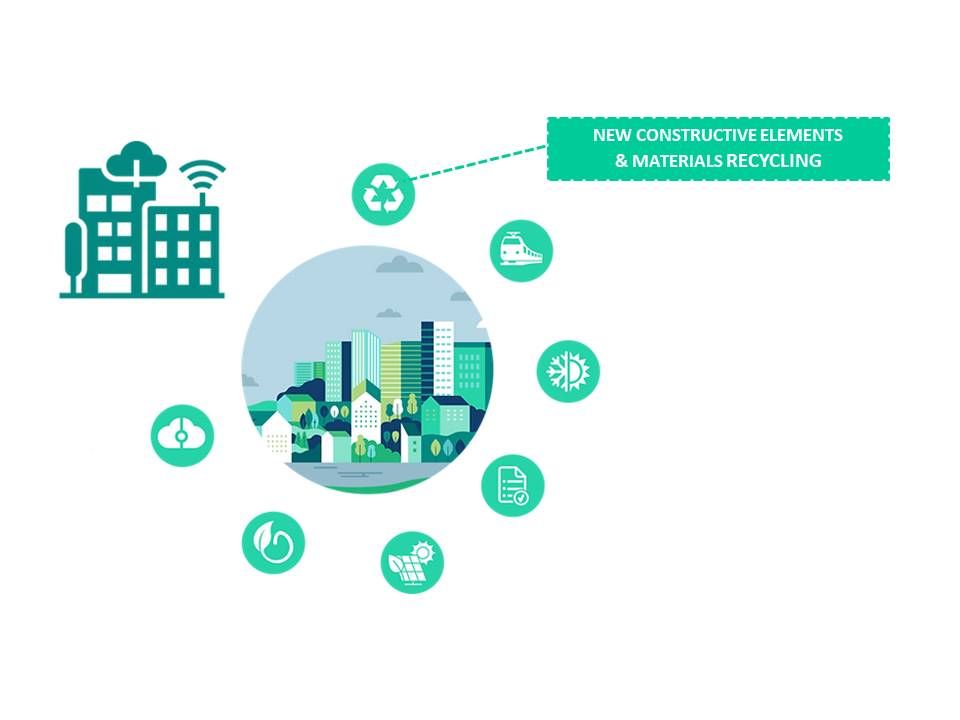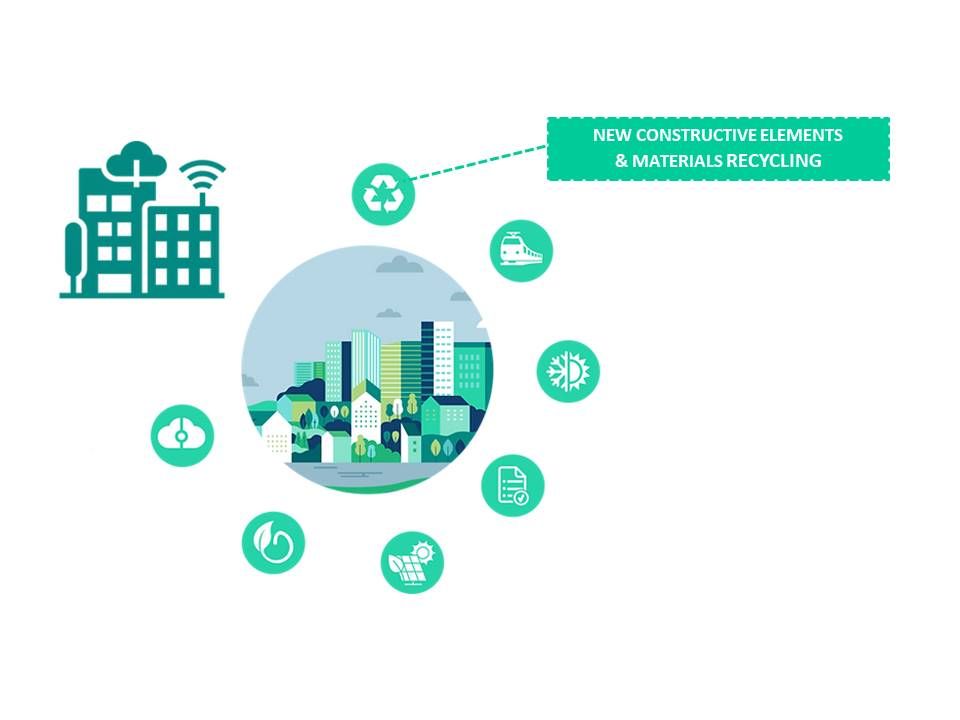
One of the most important challenges that the building sector faces is the reduction of energy consumption throughout the entire life cycle, i.e. from the manufacture of building elements, through their useful life, to their demolition. So much so that the United Nations Environment Programme (UNEP) estimates that buildings consume approximately 40% of the world’s energy, 25% of the world’s water and 40% of the world’s resources; moreover, buildings are responsible for approximately 1/3 of the world’s greenhouse gas emissions. In Europe alone, more than 220 million existing buildings – approximately 75 per cent of the building stock – are energy inefficient indeed, many of them rely on fossil fuels for heating and cooling.
In view of the construction sector is responsible for more than 35% of the EU’s total waste generation, one of the main promising measures to tackle the high CO2 emissions of this sector and move towards a more circular economy is to encourage the use of secondary materials.
Faced with this situation, the CIDAUT Foundation takes part in PROBONO project, a European project in which the implementation of the circular economy in this sector is essential. In this line, the CIDAUT Foundation is going to use recycled materials in insulation and structural applications to achieve more sustainable and efficient buildings. This will avoid the use of materials of fossil origin as well as introduce recyclable and lightweight materials.
One of the strategies for reducing the heating and cooling demands is to focus on improving the insulation properties of building envelopes, in addition to enhancing the efficiency of appliances or modifying citizen life styles. The first action plays a decisive role, as it can lead to significant improvements with a short payback period. This action is aligned with the European strategy of introducing more efficient and environmentally friendly materials. This is why the PROBONO project is working on the implementation of insulating as well as sustainable materials and processes.
